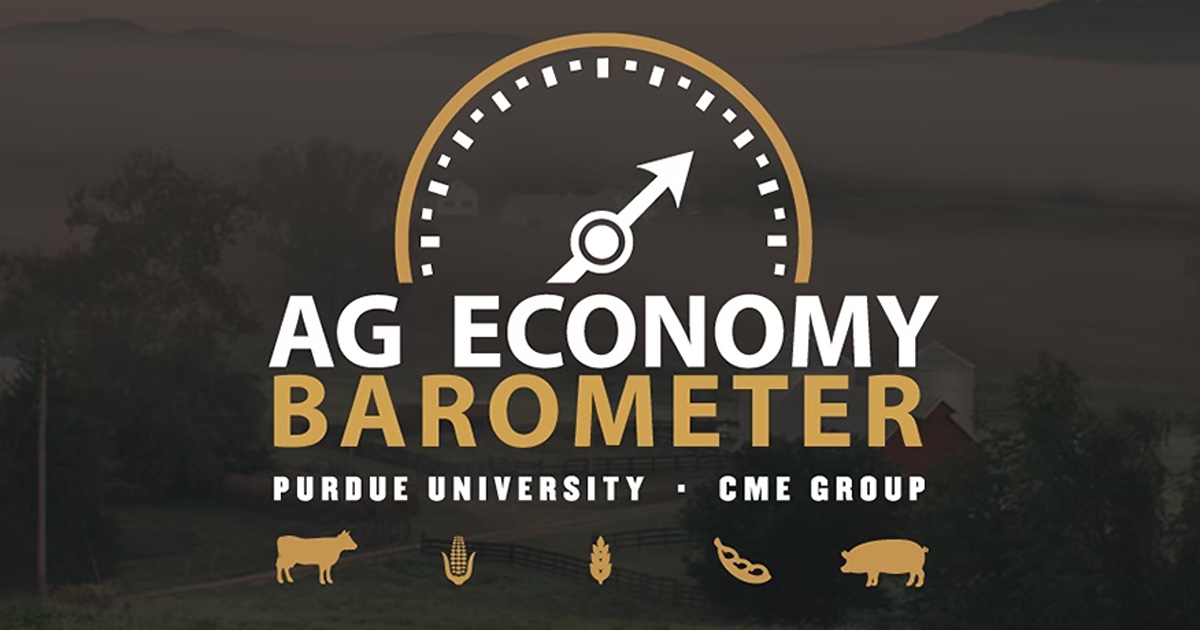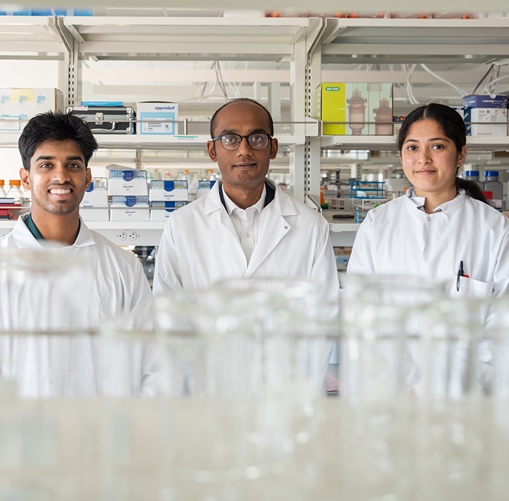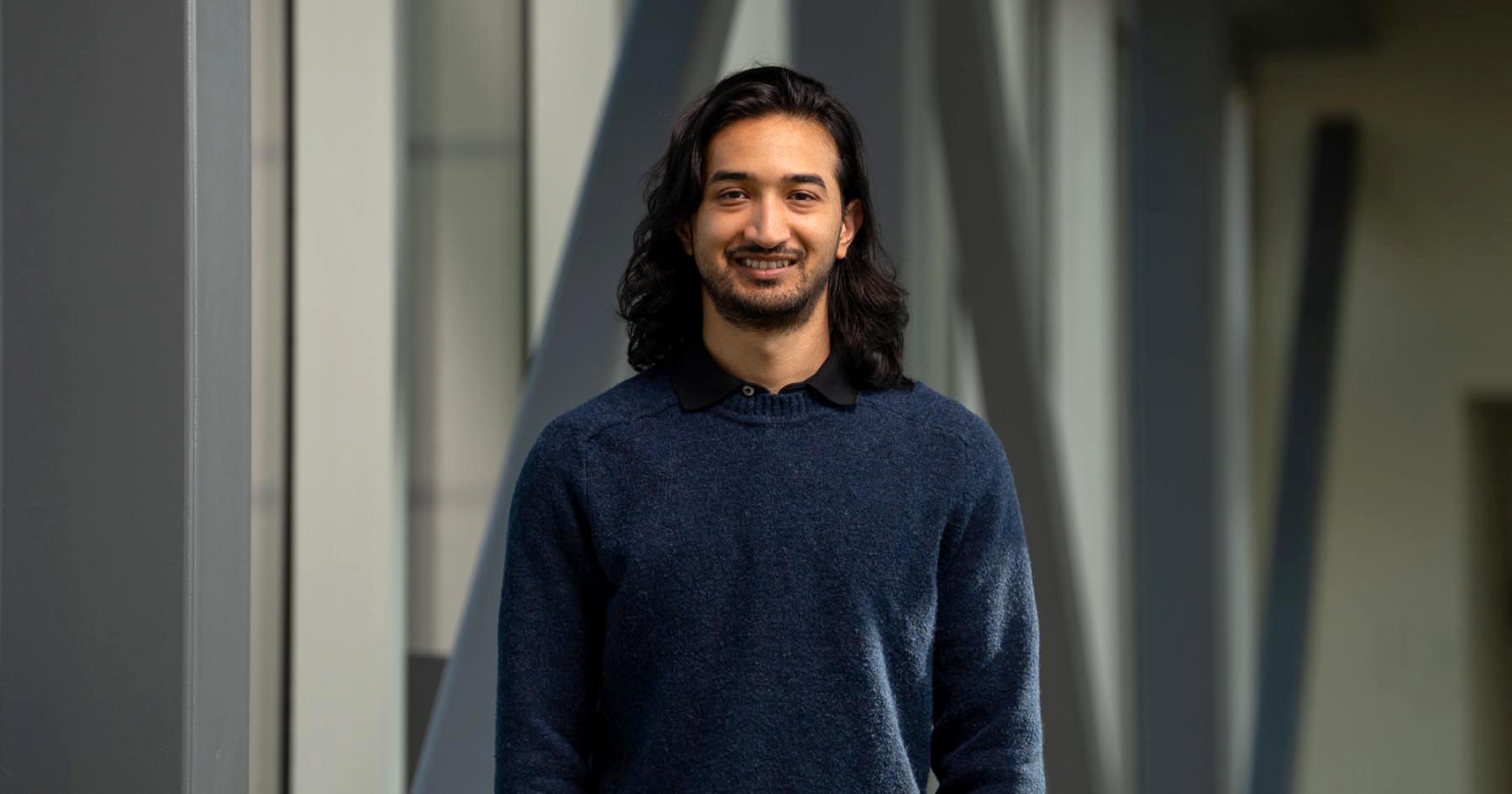Jennifer Rackliffe - Graduate Ag Research Spotlight
This is a beautiful confluence of so many factors — treating waste streams to generate a reliable, renewable, and affordable source of energy that is aligned with our existing infrastructure.
- Jennifer Rackliffe, PhD student, Department of Agricultural and Biological Engineering
THE STUDENT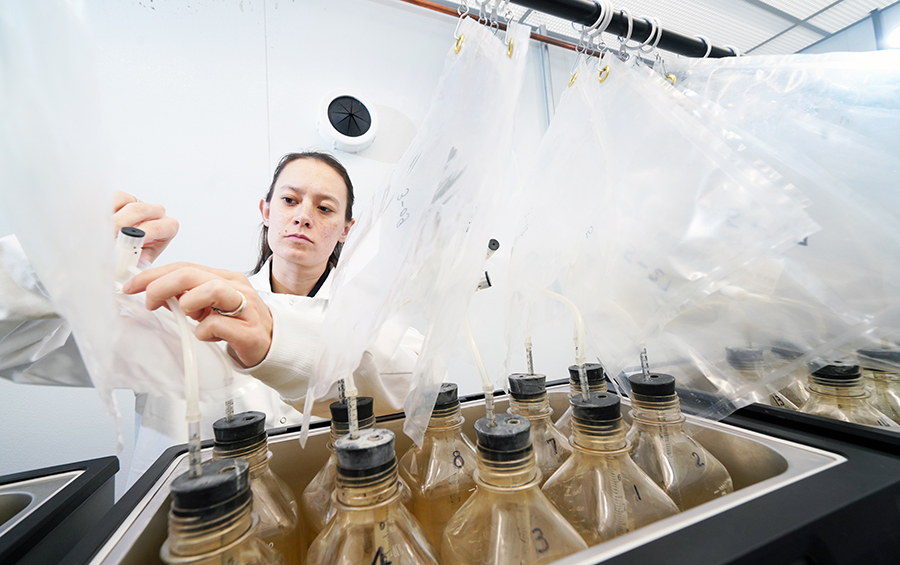
Colorado Springs native Jennifer Rackliffe was working toward a bachelor's degree in chemical engineering at Brigham Young University when her long-held interest in sustainability re-emerged during an internship. “I’ve always been interested in sustainability and renewable energy,” she says. “Even in middle school, the idea that we could be producing renewable energy from stuff around us intrigued me.” The internship experience prompted Rackliffe to explore graduate programs with research in this area, which led her to agricultural and biological engineering at Purdue. “It seemed like the best fit,” she says. “I wanted an engineering program specifically, and it came down to my advisor and also larger opportunities.” She began work toward her doctorate by first completing a master’s degree in August 2020 under the guidance of Nate Mosier, ABE department head, and in partnership with a biodiesel company. During that time, Rackliffe was introduced to a local farm that uses anaerobic digestion. “From their needs and interests, we developed what would become my PhD project,” she says. Mosier continued as her primary advisor but also suggested Jiqin Ni, professor of agricultural and biological engineering, as Rackliffe’s co-advisor for his expertise in anaerobic digestion, her ongoing research focus.
THE RESEARCH
Rackliffe studies the biological process that produces renewable natural gas from microbial decomposition of organic matter like manure, food waste and industry waste. She specifically measures the physical and chemical characteristics of combined waste streams and their impact on commercial waste digestion. For example, combining different waste streams might make the process more cost-effective. She hopes her research will lead to better utilization of agricultural wastes. Rackliffe is often asked why she is working to produce methane, a greenhouse gas more potent than carbon dioxide. “We use the methane rather than letting it back into the atmosphere,” she explains. “With anaerobic digestion, the gas coming out of the digester came out of the atmosphere originally. Plants absorbed it, cows ate it, and then it went into the manure or food. This is an entirely self-contained carbon cycle.”
OPPORTUNITIES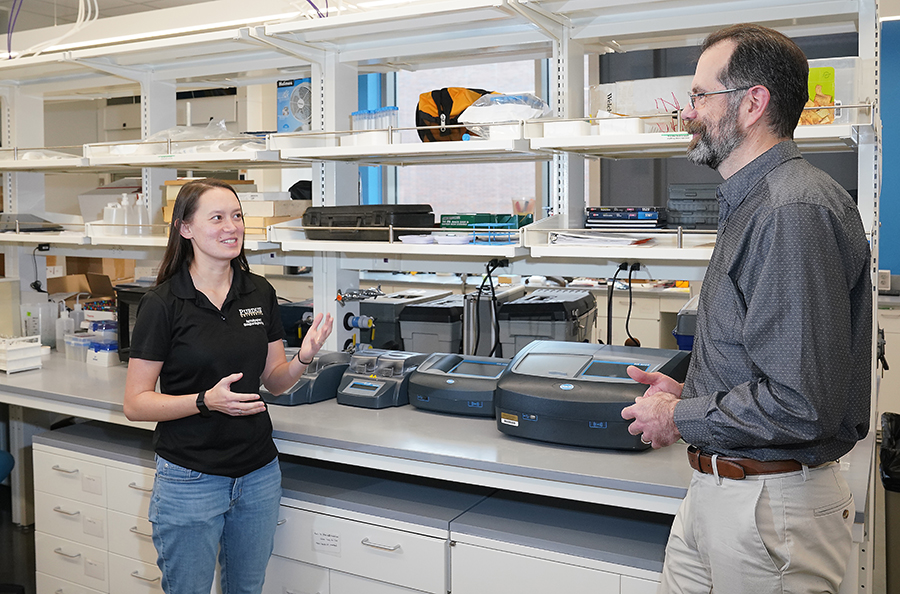
Rackliffe received an Andrews Fellowship and a highly competitive National Science Foundation Graduate Research Fellowship. An additional grant from the USDA Sustainable Agriculture Research and Education program has allowed her to focus on her research, mentor 12 undergraduates, present at two conferences and host two webinars. She credits Mosier for his support and communication: “Most of what I’ve been able to do, I wouldn’t have been able to do without him,” she says.
FUTURE PLANS
Rackliffe has finished her experimental work and is now analyzing data and writing toward completing her degree later this year. Still in the process of determining next steps, she may pursue teaching or consulting work; flexibility to balance work and family is a priority. She enjoys spending her spare time with her husband and 1-year-old daughter. The couple is active in their church, and Rackliffe also likes reading, hiking and running.

